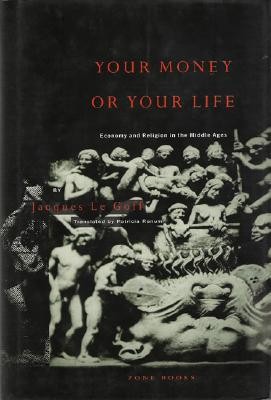
- We will send in 10–14 business days.
- Author: Jacques Le Goff
- Publisher: Zone Books
- ISBN-10: 0942299159
- ISBN-13: 9780942299151
- Format: 15.2 x 22.8 x 1.1 cm, minkšti viršeliai
- Language: English
- SAVE -10% with code: EXTRA
Reviews
Description
In this book, one of the most esteemed contemporary historians of the Middle Ages presents a concise examination of the problem that usury posed for the medieval Church, which had long denounced the lending of money for interest. Jacques Le Goff describes how, as the structure of economic life inevitably began to include financial loans, the Church refashioned its ideology in order to condemn the usurer not to hell but merely to purgatory. Le Goff is in the forefront of a history that studies "the deeply rooted and the slowly changing." As one keenly aware of the inertia of older societies, he is all the more able to delineate for us the disruptive forces of change.
EXTRA 10 % discount with code: EXTRA
The promotion ends in 23d.19:19:56
The discount code is valid when purchasing from 10 €. Discounts do not stack.
- Author: Jacques Le Goff
- Publisher: Zone Books
- ISBN-10: 0942299159
- ISBN-13: 9780942299151
- Format: 15.2 x 22.8 x 1.1 cm, minkšti viršeliai
- Language: English English
In this book, one of the most esteemed contemporary historians of the Middle Ages presents a concise examination of the problem that usury posed for the medieval Church, which had long denounced the lending of money for interest. Jacques Le Goff describes how, as the structure of economic life inevitably began to include financial loans, the Church refashioned its ideology in order to condemn the usurer not to hell but merely to purgatory. Le Goff is in the forefront of a history that studies "the deeply rooted and the slowly changing." As one keenly aware of the inertia of older societies, he is all the more able to delineate for us the disruptive forces of change.


Reviews